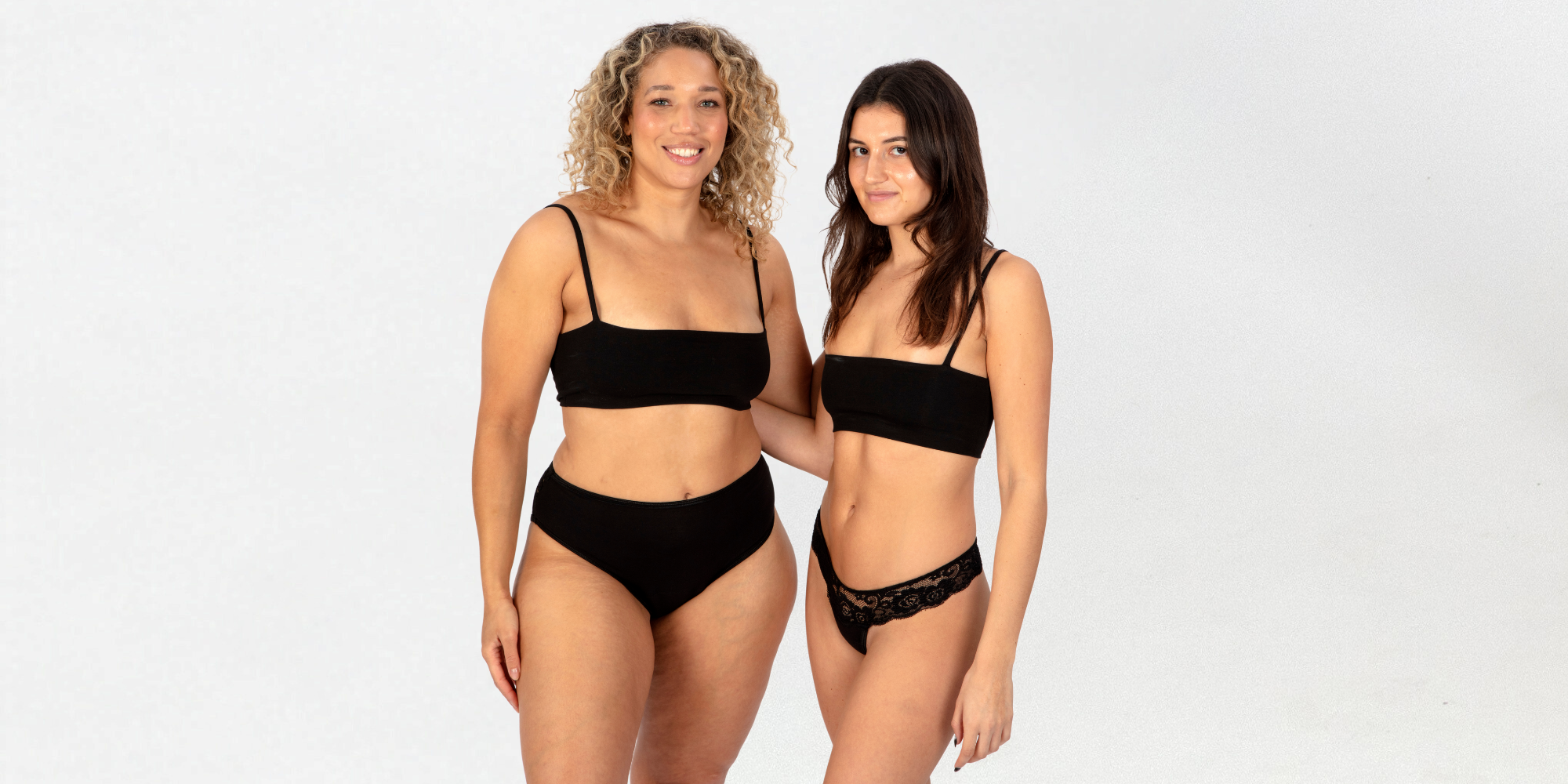Changes to Your Body During Your Menstrual Cycle
The menstrual cycle is a natural process that women experience, typically on a monthly basis. Understanding the changes that occur in your body during each phase of the cycle is crucial for managing symptoms, optimising your health, and planning your activities accordingly. This comprehensive guide will delve into the various phases of the menstrual cycle, detailing the physical and emotional changes you may experience and offering tips to manage these changes effectively.
Understanding the Menstrual Cycle
The menstrual cycle is divided into four main phases: menstrual, follicular, ovulation, and luteal. Each phase is characterised by distinct hormonal changes and physical symptoms. The average menstrual cycle lasts about 28 days, but it can range from 21 to 35 days in adults and from 21 to 45 days in young teens.
- Menstrual Phase (Days 1-7): This is the phase where menstruation occurs, marked by the shedding of the uterine lining.
- Follicular Phase (Days 7-12): This phase begins after menstruation and involves the growth of follicles in the ovaries.
- Ovulation Phase (Days 12-16): This is when a mature egg is released from the ovary.
- Luteal Phase (Days 16-28): The final phase, characterised by the preparation of the uterus for a possible pregnancy.
Tracking your menstrual cycle can help you understand your body's patterns and prepare for the changes that each phase brings.
Menstrual Phase (Days 1-7)
The menstrual phase, often referred to as your period, marks the start of the menstrual cycle. During this phase, the lining of the uterus is shed through the vagina, resulting in menstrual bleeding. This phase is often associated with a range of physical and emotional symptoms that can vary in intensity from person to person.
Common Symptoms and Body Changes:
Many women experience a noticeable drop in energy levels due to the decrease in oestrogen and progesterone. This can make you feel more fatigued and less motivated. As the uterus contracts to expel its lining, bloating and cramping are common. These contractions can lead to discomfort and a feeling of fullness in the abdomen. Hormonal fluctuations can lead to mood swings, irritability, or feelings of sadness. These emotional changes are often linked to the lower levels of serotonin, a mood-regulating neurotransmitter.
Tips for Making the Best of This Phase:
- Schedule Downtime: Plan for some downtime during this phase to allow your body to rest and recover. Use this time for gentle activities that you enjoy, such as reading, watching a favourite show, or taking a warm bath.
- Track Symptoms: Keep a diary of your symptoms to identify patterns and better anticipate your needs during your next cycle. This can also help you communicate more effectively with your healthcare provider.
- Self-Care: Prioritise rest, hydration, and a balanced diet. Heat pads can help alleviate cramps, and relaxation techniques like meditation can improve mood. Drinking herbal teas, such as chamomile or peppermint, may also soothe digestive issues and promote relaxation.
- Use Period Pants: Period pants can be a convenient and comfortable alternative to traditional menstrual products. They offer reliable protection against leaks and can help you feel more secure during your period.
Follicular Phase (Days 7-12)
Following menstruation, the follicular phase begins. This phase is named for the follicles in the ovaries that mature in preparation for ovulation. The rising levels of oestrogen during this phase contribute to various positive changes in the body and mind.
Changes in Energy Levels and Mood:
As oestrogen levels begin to rise, you may notice an increase in energy and overall well-being. This can be a great time to tackle new projects or engage in social activities. Higher oestrogen can lead to clearer skin and a more positive mood. You might feel more confident and motivated, which can positively impact your productivity and interactions.
Recommendations for Activities and Diet:
This is an excellent time for more intense physical activities such as running, cycling, or strength training. Your body is more resilient and capable of handling increased physical demands. Focus on nutrient-dense foods to support your body's energy needs. Include plenty of fruits, vegetables, lean proteins, and whole grains. Foods rich in antioxidants, like berries and leafy greens, can help support your immune system and overall health.
Benefits of Oestrogen Increase:
Higher oestrogen levels can improve skin clarity and reduce breakouts. This hormone helps regulate oil production and maintains skin elasticity. Bloating often decreases as your body moves away from the menstrual phase. The reduction in progesterone levels also helps alleviate water retention.
Tips for Making the Best of This Phase:
- Set Goals: Use the boost in energy and mood to set and achieve personal and professional goals. Whether it's starting a new project at work or setting a personal best in your fitness routine, this is a great time to push yourself.
- Engage Socially: Plan social activities with friends and family. Your elevated mood and energy levels can make these interactions more enjoyable and fulfilling.
- Skincare Routine: Take advantage of clearer skin by following a good skincare routine. Hydrate, cleanse, and protect your skin to maintain its glow.

Ovulation Phase (Days 12-16)
The ovulation phase is a short but significant part of the menstrual cycle. It occurs when a mature egg is released from the ovary and is available for fertilisation. This phase is often characterised by peak physical and emotional well-being.
Peak Energy Levels:
Many women feel their best physically and mentally during this phase, making it an ideal time for achieving personal bests in workouts and other activities. You might notice an increase in stamina and strength. Some women experience heightened senses, such as better taste and smell, during ovulation. This can make activities like cooking and eating more enjoyable.
Physical and Emotional Changes:
Weight may feel lighter, and you may experience a natural boost in confidence and motivation. This can be a great time to set and pursue new goals, both personally and professionally. Some women notice an increase in sexual desire due to the surge in hormones. This is nature's way of encouraging reproduction during the most fertile period.
Tips for Making the Best of This Phase:
- Maximise Workouts: Use your peak energy levels to push your physical limits. Try new workouts or increase the intensity of your regular routine to capitalise on your body's heightened performance.
- Pursue Passion Projects: Channel your increased motivation and confidence into passion projects or hobbies. Whether it's starting a new creative endeavour or taking on a challenging task at work, this is a great time to excel.
- Enjoy Culinary Experiences: With heightened senses, this is a perfect time to experiment with new recipes or visit a favourite restaurant. Savouring different flavours can be a delightful experience during ovulation.
Luteal Phase (Days 16-28)
The luteal phase follows ovulation and lasts until the start of your next period. During this phase, the body prepares for a potential pregnancy. The hormonal changes during this phase can lead to various physical and emotional symptoms.
Gradual Reduction in Energy Levels:
You may notice a gradual decrease in energy as progesterone levels rise and oestrogen levels fall. This can lead to feelings of fatigue and a need for more rest. Some women experience premenstrual syndrome (PMS) symptoms such as irritability, mood swings, and fatigue. These changes are often due to the shifting hormone levels affecting neurotransmitter activity.
Symptoms to Expect:
As the body prepares for menstruation, bloating and breast tenderness may occur. These symptoms are caused by water retention and hormonal changes affecting breast tissue. Hormonal changes can lead to cravings for specific foods, often those high in sugar or fat. These cravings are the body's way of seeking comfort and energy during a potentially stressful time.
Tips for Making the Best of This Phase:
- Pamper Yourself: Take extra care of yourself with activities that promote relaxation and comfort. Consider a warm bath, a massage, or a quiet evening with a good book.
- Plan Ahead: Use the earlier phases of your cycle to prepare for the lower energy and potential mood swings of the luteal phase. This can include completing demanding tasks in advance and ensuring you have healthy snacks on hand for cravings.
- Mindful Eating: Be mindful of your cravings and opt for healthier alternatives when possible. Indulge in moderation and balance your diet with nutrient-dense foods to support your body's needs.
- Consider Period Pants: Wearing period pants during this phase can offer added comfort and convenience. The period thong is especially useful if you start spotting before your period fully begins, providing a stress-free solution to unexpected leaks.
Understanding the changes your body undergoes during the menstrual cycle can help you manage symptoms and optimise your health. By being attuned to your body's needs and tracking your cycle, you can better prepare for each phase and maintain your well-being throughout the month. Remember to listen to your body, adjust your activities accordingly, and seek medical advice if you experience severe symptoms.



